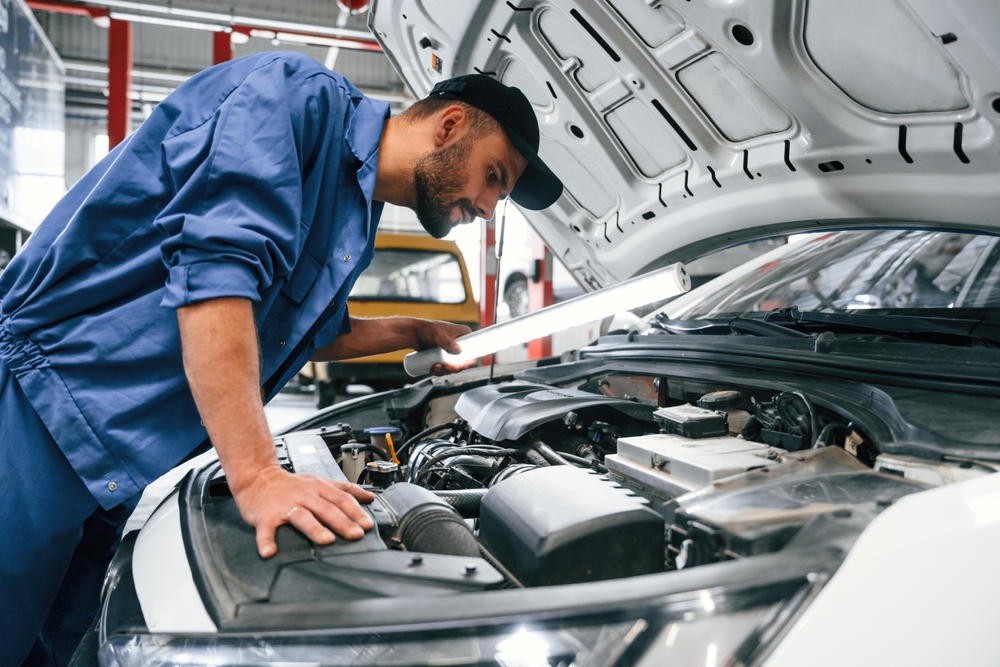
Every mechanic has a list of vehicles that make them groan the second they pull into the shop. It’s not about brand loyalty; it’s about engineering decisions that make simple repairs unnecessarily frustrating. Some carmakers design for showroom appeal, not long-term serviceability, leaving technicians battling awkward layouts and sky-high part costs. These headaches often translate into higher bills and longer repair times for owners, too. Here’s a look at why some car brands earn the quiet frustration of mechanics everywhere.
European Brands Known for Overengineering
German and other European automakers have a reputation for precision engineering, but that same precision can become a nightmare when repairs are needed. Mechanics often joke that you need a PhD in mechanical engineering just to change a headlight on certain models. Everything is tightly packed under the hood, requiring hours of labor to reach simple components. Parts are also proprietary, meaning you can’t just grab them from a local supplier without paying premium prices. For mechanics, what looks beautiful on the outside often hides a maze of overcomplicated systems beneath.
Cars That Require Special Tools for Everything
Some brands make sure that only their dealerships can perform repairs efficiently by designing cars that require brand-specific tools. These tools can cost hundreds or even thousands of dollars, which many independent mechanics can’t justify buying for one or two models. It turns even basic maintenance into a time-consuming ordeal. Mechanics who pride themselves on efficiency find it infuriating when a simple job like replacing a battery involves removing trim, computer resets, or coding through a scan tool. It’s not that they can’t fix these cars; it’s that the manufacturers make it unnecessarily difficult.
Luxury Vehicles with Fragile Electronics
Luxury car owners expect cutting-edge tech, but for mechanics, that technology can feel like a ticking time bomb. The more sensors, cameras, and software layers a car has, the more things can go wrong. Mechanics often spend more time diagnosing electrical gremlins than actually turning wrenches. Even something like a faulty window switch can trigger cascading error codes that require hours on a diagnostic computer. These cars are impressive feats of engineering, but their electronic fragility keeps repair shops constantly on edge.
Cars with Poor Parts Availability
Certain brands, especially those imported in small numbers, make getting replacement parts a nightmare. Mechanics can’t fix what they can’t source, and waiting weeks for parts delays everything. Some models require parts shipped from overseas, dramatically driving up repair times and costs. This can frustrate both customers and technicians, who’d rather complete a repair in one visit. Mechanics don’t hate the cars themselves. They hate the logistical headaches that come with them.
Brands That Cut Corners on Design and Materials
On the other end of the spectrum are brands known for cheap components and fragile design. These cars often break down more frequently, creating a revolving door of the same repairs. While that might sound good for business, most mechanics value craftsmanship. They don’t enjoy fixing the same weak plastic clip or failing transmission part over and over. Poor-quality fasteners, flimsy interiors, and difficult engine layouts make their work more tedious than rewarding. It’s not about brand snobbery; it’s about having to fix something that was never built to last.
Cars That Pack Big Engines into Tight Spaces
Some performance cars and SUVs cram large, powerful engines into compact bays that leave almost no room to work. Mechanics often need to remove entire components (sometimes even the engine) just to access a single part. Jobs that should take an hour can stretch into a full day because of cramped layouts. Manufacturers may prioritize performance and aesthetics, but they don’t always think about serviceability. For mechanics, it’s not horsepower envy; it’s spatial frustration.
Hybrids and EVs That Complicate Simple Repairs
As electric and hybrid cars become more common, many mechanics are discovering just how different (and sometimes aggravating) they can be to service. Specialized training, high-voltage safety gear, and unique drivetrains make even routine maintenance intimidating. Some hybrid components, like batteries and regenerative braking systems, are notoriously expensive to replace and difficult to access. Mechanics appreciate the innovation but dread the learning curve and risk that comes with working on them. Even seasoned professionals admit that EVs introduce an entirely new layer of complexity.
Cars Designed Without Mechanic Input
The biggest frustration of all? When it’s clear that a vehicle was never designed with mechanics in mind. Engineers often build for efficiency, aerodynamics, or cost, not repairability. Components buried behind dashboards or under subframes make even minor repairs major events. Mechanics see it as a disconnect between design and practicality. The result is cars that might look great on the lot but turn into service nightmares once they hit 100,000 miles.
What This Means for Everyday Drivers
When a mechanic hesitates before accepting your vehicle, it’s rarely personal… It’s practical. The cars that frustrate technicians the most are often the ones that frustrate owners later, too. Choosing a vehicle with accessible parts, strong reliability ratings, and reasonable repair costs can save time, money, and a lot of swearing down the line. Cars built with long-term maintenance in mind may not always be flashy, but they’re the ones mechanics secretly respect. In the end, every driver benefits when good design and easy serviceability go hand in hand.
Have you ever owned a car that your mechanic clearly hated working on? Share your experience (and the brand) in the comments below.
What to Read Next
- 10 Car Brands That Men Defend Even When Mechanics Warn Them Off
- 5 Car Brands That Are Quietly Making A Comeback
- 6 Car Brands That Mechanics Say Take the Longest to Get Parts For
- Why Are These Car Brands Quietly Fading from U.S. Dealerships?
- Which Car Brands Are Now Failing U.S. Emissions Tests the Most?
The post Why Mechanics Secretly Hate Working on Certain Car Brands appeared first on Clever Dude Personal Finance & Money.







